Guide to Yoga For Knee Pain Relief
Ease knee pain with gentle yoga. This guide offers safe, effective poses and practices to strengthen muscles, improve flexibility, and find lasting relief.

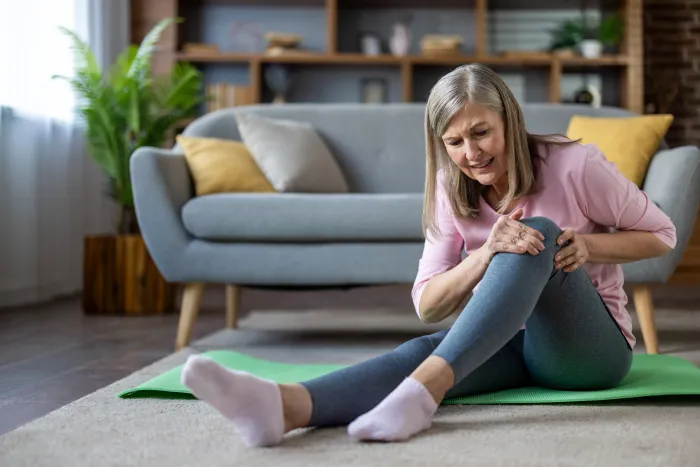
Introduction
Knee pain can feel like a life sentence, limiting your mobility and putting a damper on everyday activities. Whether it's a sharp twinge from arthritis, a dull ache from an old injury, or general stiffness, finding relief is a top priority. While it might seem counterintuitive, one of the most effective ways to combat knee pain is through mindful movement. This guide explores how yoga, an ancient practice known for its healing benefits, can be a powerful tool for knee pain relief. We'll move beyond just listing poses and delve into the 'why' and 'how'—teaching you to strengthen the supportive muscles, improve flexibility, and restore functional movement, all while prioritizing safety and alignment. Get ready to reclaim comfort and stability in your steps.
Understanding Your Knee Pain
Before rolling out your mat, it's crucial to understand what might be causing your discomfort. The knee is a complex hinge joint reliant on strong muscles, ligaments, and tendons for stability.
Common Causes of Knee Discomfort
Knee pain is rarely an isolated issue. Often, it's a symptom of weakness or imbalance elsewhere. Common culprits include:
Arthritis: Osteoarthritis (wear and tear) and rheumatoid arthritis (inflammatory) are leading causes.
Muscular Imbalances: Weak quadriceps or glutes fail to support the knee properly, while tight hamstrings or IT bands can pull the joint out of alignment.
Previous Injuries: Old ACL tears, meniscus damage, or patellar tendinitis can lead to chronic issues.
Overuse: Common in runners or cyclists ("runner's knee" or patellofemoral pain syndrome).
How Yoga Addresses the Root of the Problem
Yoga doesn't just mask the pain; it tackles the underlying causes. A well-rounded yoga practice for knee health focuses on:
Strengthening: Building up the quadriceps, hamstrings, glutes, and core creates a natural "brace" for the joint.
Stretching: Increasing flexibility in the hips, calves, and thighs reduces pulling and misalignment on the knee.
Improving Proprioception: Yoga enhances your body's awareness of its position in space, leading to better movement patterns and less strain during daily activities.
Consult a General Physician for the best advice
Essential Precautions Before You Begin
Safety is paramount. Pushing too hard can exacerbate existing issues.
When to See a Doctor: Listening to Your Body's Signals
While gentle yoga for knee pain can be beneficial, it's not a substitute for medical diagnosis. If your pain is severe, accompanied by significant swelling, redness, warmth, or you're unable to bear weight, consult a doctor online with Apollo24|7 for further evaluation. They can provide a precise diagnosis and rule out serious conditions.
The Golden Rule: Never Practice Through Sharp Pain
A mild stretch or muscular fatigue is normal. A sharp, stabbing, or shooting pain in the joint is not. This is your body's signal to STOP. Differentiate between discomfort and pain. Always use props like blocks, blankets, and straps to modify poses and support your knee health.
Foundational Poses to Build Strength and Stability
These poses target the major muscle groups that support the knees. Focus on form over depth.
Chair Pose (Utkatasana) for Quad Strength
This pose is a powerhouse for building the quadriceps, which are vital for knee stability.
How to: Stand with feet hipwidth apart. Bend your knees and lower your hips as if sitting in a chair. Keep your weight in your heels and ensure your knees track in line with your toes, not jutting out past them. Raise your arms overhead. Hold for 5 breaths.
Modification: Don't sink too deep. A shallow bend is equally effective and safer for bad knees.
Bridge Pose (Setu Bandhasana) for Glute Activation
Weak glutes contribute to knee valgus (inward collapse of the knee). Bridge pose directly targets the glutes and hamstrings.
How to: Lie on your back with knees bent, feet hipwidth apart and close to your glutes. Press through your feet to lift your hips toward the ceiling. Squeeze your glutes at the top. Hold for 5 breaths, then lower slowly.
Modification: Place a block between your thighs to engage the inner legs and maintain proper alignment.
Warrior II (Virabhadrasana II) for Overall Leg Stability
This iconic pose builds incredible strength and stability in the entire leg, improving balance and joint integrity.
How to: Step your feet wide apart. Turn your right foot out 90 degrees and your left foot in slightly. Bend your right knee, aiming to get your thigh parallel to the floor, ensuring your knee is directly over your ankle. Extend your arms parallel to the floor and gaze over your right fingertips. Hold for 58 breaths.
Modification: Shorten your stance and don't bend your front knee as deeply to avoid strain.
Restorative Poses for Flexibility and Pain Relief
These poses focus on releasing tension in the muscles that influence the knee.
Reclining HandtoBigToe Pose (Supta Padangusthasana)
This supine pose is a safe way to stretch the hamstrings and calves without compressing the knee joint.
How to: Lie on your back. Hug your right knee into your chest. Loop a strap around the sole of your right foot and slowly straighten your leg toward the ceiling. Keep your left leg active and pressed into the mat. Hold for 810 deep breaths per side.
Supported Hero Pose (Salamba Virasana)
This is an excellent stretch for the quadriceps and the front of the ankle, but it must be done with support to protect the knees.
How to: Kneel on your mat. Place a thick cushion or yoga block between your feet and your sitting bones. Gently sit back on the support. If you feel any pinching in your knees, add more height or skip this pose. Hold for 510 deep breaths.
Poses to Approach with Caution or Avoid
Not all yoga is created equal for knee pain. Be mindful of these:
Lotus Pose (Padmasana): Requires extreme external rotation that can stress the knee ligaments.
Deep Lunges with Back Knee Down: Can compress the kneecap. Always place a folded blanket under your knee for padding.
Full Virasana (Hero Pose) without support: Can strain the menisci.
Any pose that causes a sharp or pinching sensation in the knee. Listen to your body above all else.
Building a Sustainable Yoga Routine for Knee Health
Consistency is key. Aim for a short, 1520 minute practice 34 times per week rather than one long, intense session. Start with the strengthening and stretching poses listed above. Warm up with gentle cat-cow stretches and ankle rotations. Always end with a few minutes of rest in Corpse Pose (Savasana), allowing your body to integrate the benefits.
Conclusion
Living with knee pain can be frustrating, but it doesn't have to be permanent. By embracing a mindful yoga practice, you empower yourself to become an active participant in your healing journey. This guide has provided you with the tools to build strength, increase flexibility, and cultivate a deeper awareness of your body's alignment. Remember, the goal is not to achieve perfect poses but to foster a respectful and nurturing relationship with your body. Start slowly, honor your limits, and celebrate small improvements. With patience and consistency, you can pave the way for stronger, more comfortable, and resilient knees, allowing you to move through life with greater ease and joy. Roll out your mat today and take the first step toward lasting relief.
Consult a General Physician for the best advice
Consult a General Physician for the best advice
Dr. Shamim Anjum
Family Physician
15 Years • MBBS, M MED (Family Medicine)
Hyderabad
FAMILY CARE CLINIC, Hyderabad

Dr. Rajib Ghose
General Physician/ Internal Medicine Specialist
26 Years • MBBS
Kolkata
B Ghose Foundation Doctor's Chamber, Kolkata
(50+ Patients)

Dr. Amitava Ray
General Physician/ Internal Medicine Specialist
20 Years • MBBS, DNB (Family Med.), PGDHHM, FRSTM&H. Certificate in Geriatric medicine & Diabetes Management.
Kolkata
Apollo Multispeciality Hospitals , Kolkata, Kolkata
(625+ Patients)

Dr. Shubham Chauhan
General Practitioner
4 Years • MBBS
Lucknow
Apollo 24|7 Clinic - Uttar Pradesh, Lucknow

Dr D M Karthik
General Practitioner
4 Years • MBBS, Fellowship in Diabetes Mellitus, Advance certificate in Diabetes Mellitus, Derma Nutrition Certification
Visakhapatnam
Apollo 24|7 Clinic - Andhra Pradesh, Visakhapatnam
More articles from Knee pain
Frequently Asked Questions
1. Can yoga actually cure chronic knee pain?
While yoga may not 'cure' structural issues like severe arthritis, it is incredibly effective at managing chronic knee pain by strengthening supporting muscles, improving alignment, and reducing inflammation, often leading to a significant reduction or elimination of symptoms.
2. I have arthritis in my knees. Is yoga safe for me?
Yes, yoga for knee arthritis is generally safe and highly recommended. The key is to choose gentle, strengthening poses and avoid deep flexion or poses that cause joint compression. Always consult your doctor before starting a new routine.
3. How long will it take to see results from yoga for knee pain?
Results vary based on the individual and the consistency of practice. Some people feel immediate relief from stretching, while building strength for long-term stability can take 48 weeks of regular practice.
4. What is the single best yoga pose for knee pain?
There isn't one 'best' pose, as a combination is most effective. However, Chair Pose (Utkatasana) is one of the top poses for building the quad strength essential for knee pain relief.
5. Should my knee ever hurt during yoga?
You should never feel a sharp, stabbing, or pinching pain in the joint. A stretch in the surrounding muscles (hamstrings, quads) is normal. If you feel joint pain, ease out of the pose immediately and reassess your alignment or use a prop.
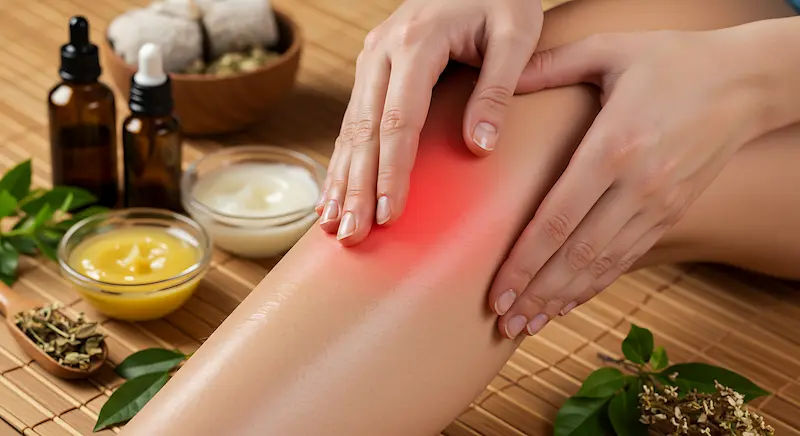
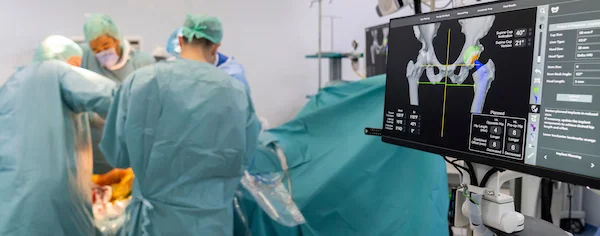
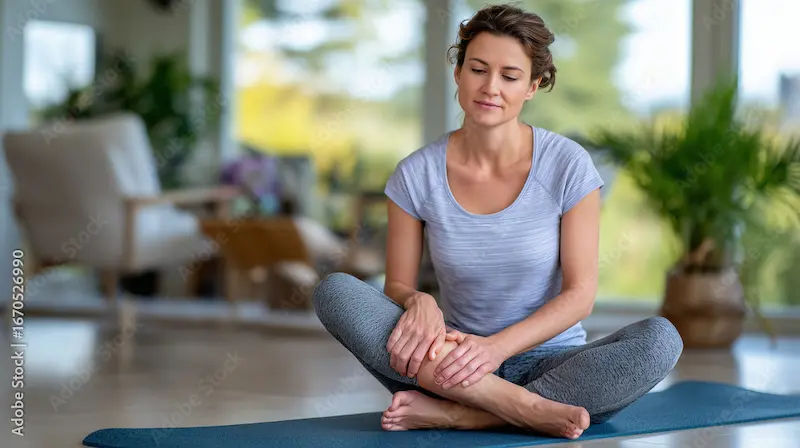
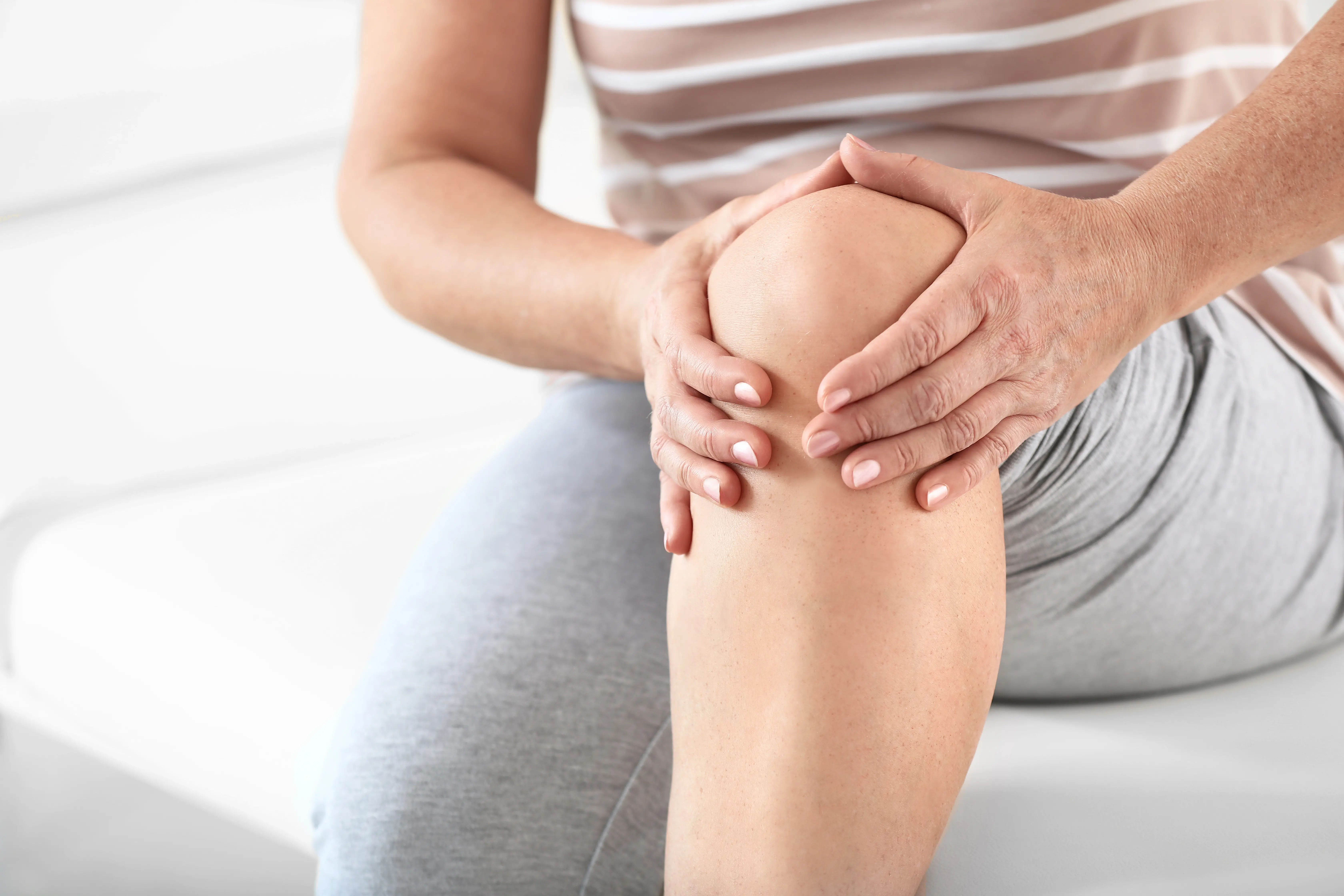
.webp)